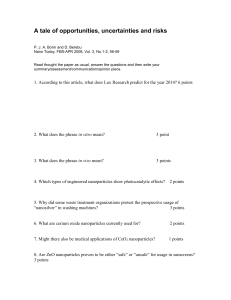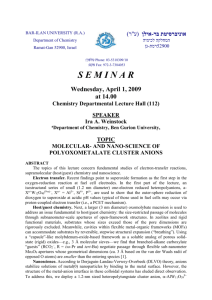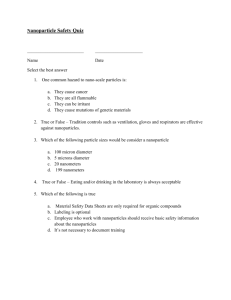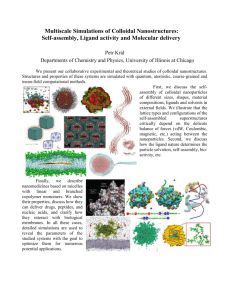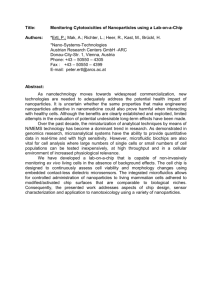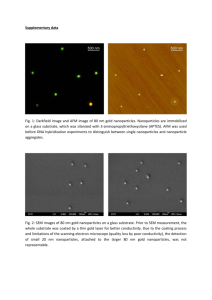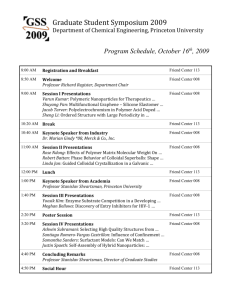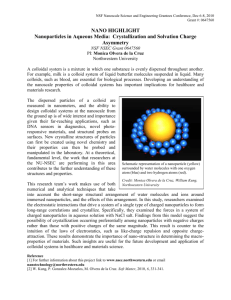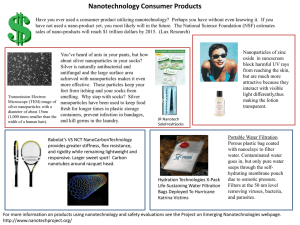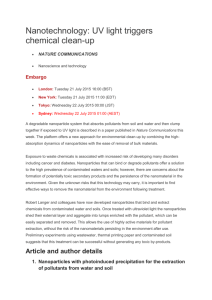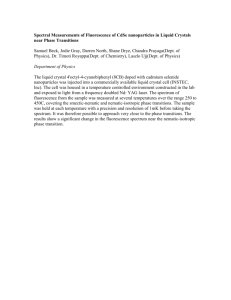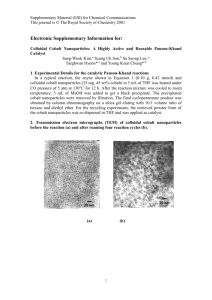Tuning the interface of nanoparticles with biological environments
advertisement
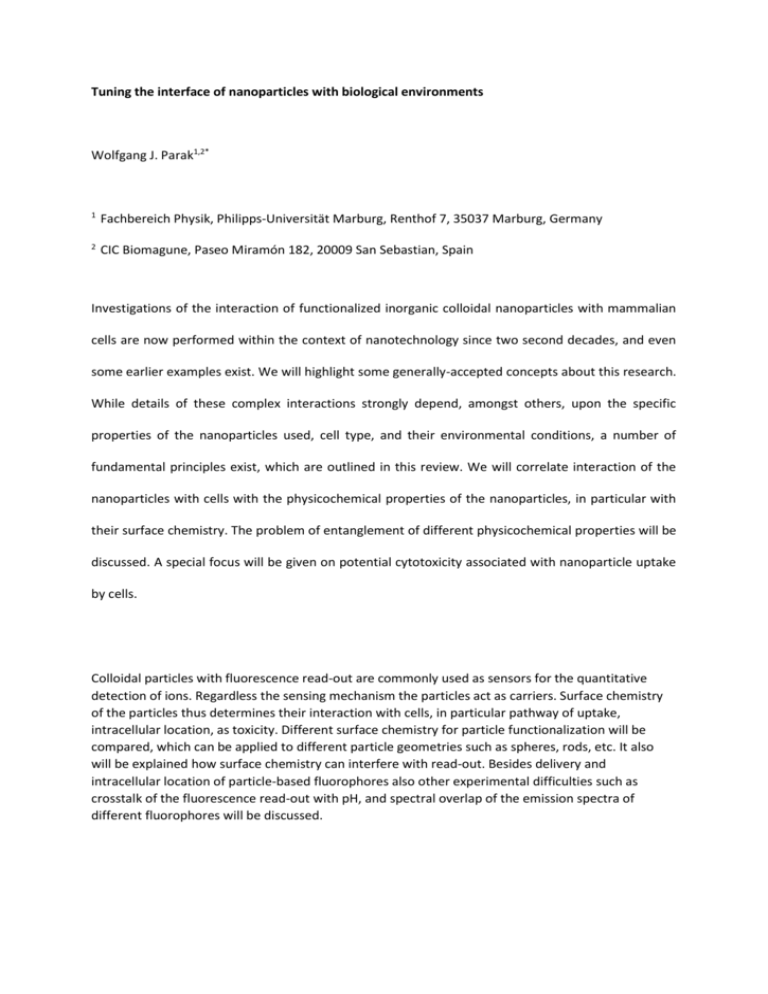
Tuning the interface of nanoparticles with biological environments Wolfgang J. Parak1,2* 1 Fachbereich Physik, Philipps-Universität Marburg, Renthof 7, 35037 Marburg, Germany 2 CIC Biomagune, Paseo Miramón 182, 20009 San Sebastian, Spain Investigations of the interaction of functionalized inorganic colloidal nanoparticles with mammalian cells are now performed within the context of nanotechnology since two second decades, and even some earlier examples exist. We will highlight some generally-accepted concepts about this research. While details of these complex interactions strongly depend, amongst others, upon the specific properties of the nanoparticles used, cell type, and their environmental conditions, a number of fundamental principles exist, which are outlined in this review. We will correlate interaction of the nanoparticles with cells with the physicochemical properties of the nanoparticles, in particular with their surface chemistry. The problem of entanglement of different physicochemical properties will be discussed. A special focus will be given on potential cytotoxicity associated with nanoparticle uptake by cells. Colloidal particles with fluorescence read-out are commonly used as sensors for the quantitative detection of ions. Regardless the sensing mechanism the particles act as carriers. Surface chemistry of the particles thus determines their interaction with cells, in particular pathway of uptake, intracellular location, as toxicity. Different surface chemistry for particle functionalization will be compared, which can be applied to different particle geometries such as spheres, rods, etc. It also will be explained how surface chemistry can interfere with read-out. Besides delivery and intracellular location of particle-based fluorophores also other experimental difficulties such as crosstalk of the fluorescence read-out with pH, and spectral overlap of the emission spectra of different fluorophores will be discussed.
